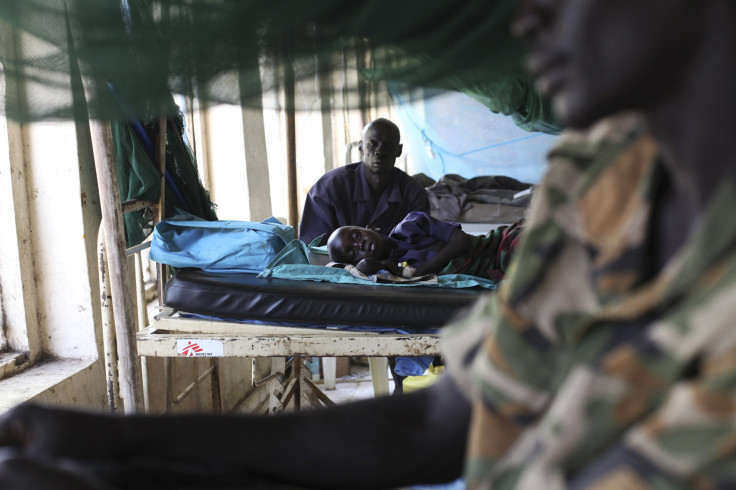Ebola Outbreak Has Taken Attention Away From Malaria, And Experts Fear This May Cause Increase In Child Deaths

The children’s wards of malaria hospitals throughout West Africa are becoming increasingly deserted. Although the disease killed over half a million people in 2012, the medical personnel that used to tend to these patients have now been re-stationed to help contain the recent Ebola outbreak. Malaria is a completely treatable condition, but with full-on attention on Ebola, experts fear its death tolls will reach devastating numbers.
Dr. Fatoumata Nafo-Traoré, head of the Roll Back Malaria (RBM) Partnership told the BBC that malaria wards in hospitals are becoming “ghost areas, because of the lack of manpower there.” In three countries most affected by Ebola, malaria was responsible for the death of 7,000 people in 2012. These numbers can only be expected to increase due to the lack of resources to fight against the deadly virus.
Malaria has early symptoms similar to Ebola, and because of this, it has now become more difficult to keep track of who has malaria and who is dying from it. Past measures to contain malaria in West Africa have been somewhat positive, with Guinea and Sierra Leone meeting their targets last year for distribution of bed nets. Unfortunately, the efforts were not as well received in Liberia. Now, with the country trying to contain Ebola as well, it’s feared that more children will unnecessarily succumb to this virus. "We all agree that no child should die from malaria, because we have the tools to prevent and treat it,” Nafo-Traoré said.
When it comes down to exact figures, malaria has killed thousands more than Ebola, and most of malaria’s victims are children. According to the World Health Organization, malaria killed around 627,00 people last year, with 90 percent of all these deaths occurring in Africa and mostly among children under 5 years of age. In the past year, Ebola has killed around 5,000 individuals.
Along with the decreasing amounts of medical care available for malaria patients, the distrust of authority stirred by the Ebola outbreak is affecting malaria. “At the moment when people have fevers, they are often afraid to go to health care facilities because they want to avoid being held in the Ebola treatment centres," Nafo-Traoré said. Many Africans believe that it's health care workers who have brought these viruses to their areas and refuse to seek help when they or their loved ones fall ill.
Rather than label one disease as more important than the others, malaria doctors suggest that equal attention be paid to lower the death tolls for both. “A key aim is to decrease cases of malaria-related fever, so the Ebola centres don't get overwhelmed,” Nafo-Traoré said.



























